By Tova Point
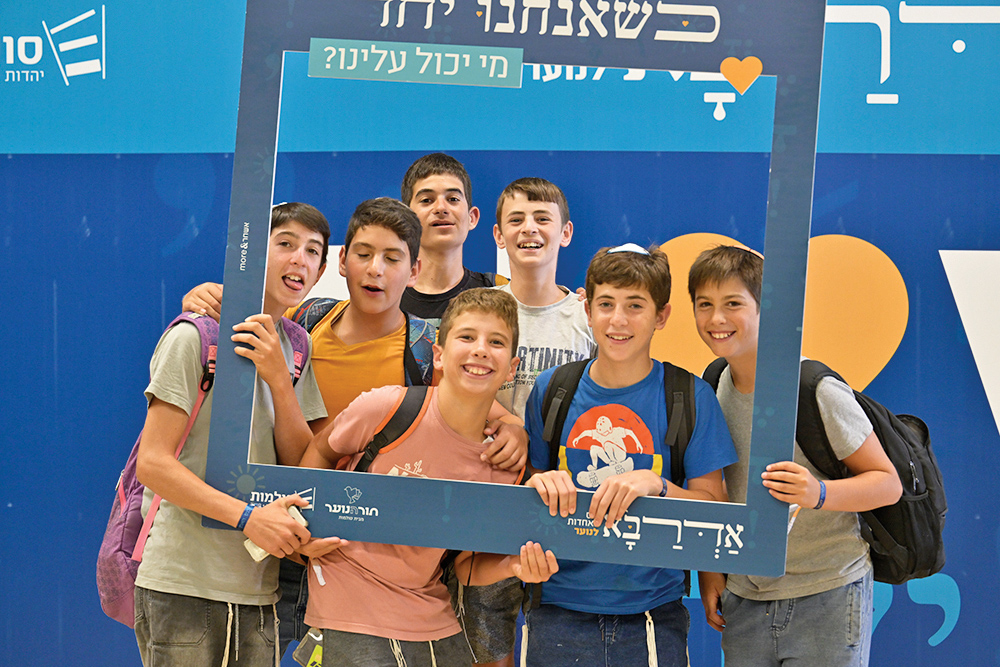
As Israeli society grapples with deep-seated divisions, a beacon of unity emerged on July 18, the eve of Rosh Chodesh Av, when a lively crowd of thousands of teens from across the country gathered at Binyanei Hauma to take part in an energy-charged Unity Conference, billed “Aderaba.”
The Aderaba conference was the initiative of Sulamot, founded by the Chief Rabbi of Gush Etzion, Rav Yosef Zvi Rimon, and the Rothenberg Family Foundation, founded by Robbie Rothenberg. “When we talk about achdut, it’s not just a buzzword—we need to take action. The idea of this conference was to teach the youth exactly what it means to have achdut, and to give them practical skills to bring achdut to the world,” said Rothenberg.
Rav Rimon, who also penned a special prayer for unity, to be recited in synagogues this Tisha B’Av, expressed his aspiration that the teens absorb the positive messages and leave the conference as “unity ambassadors.”
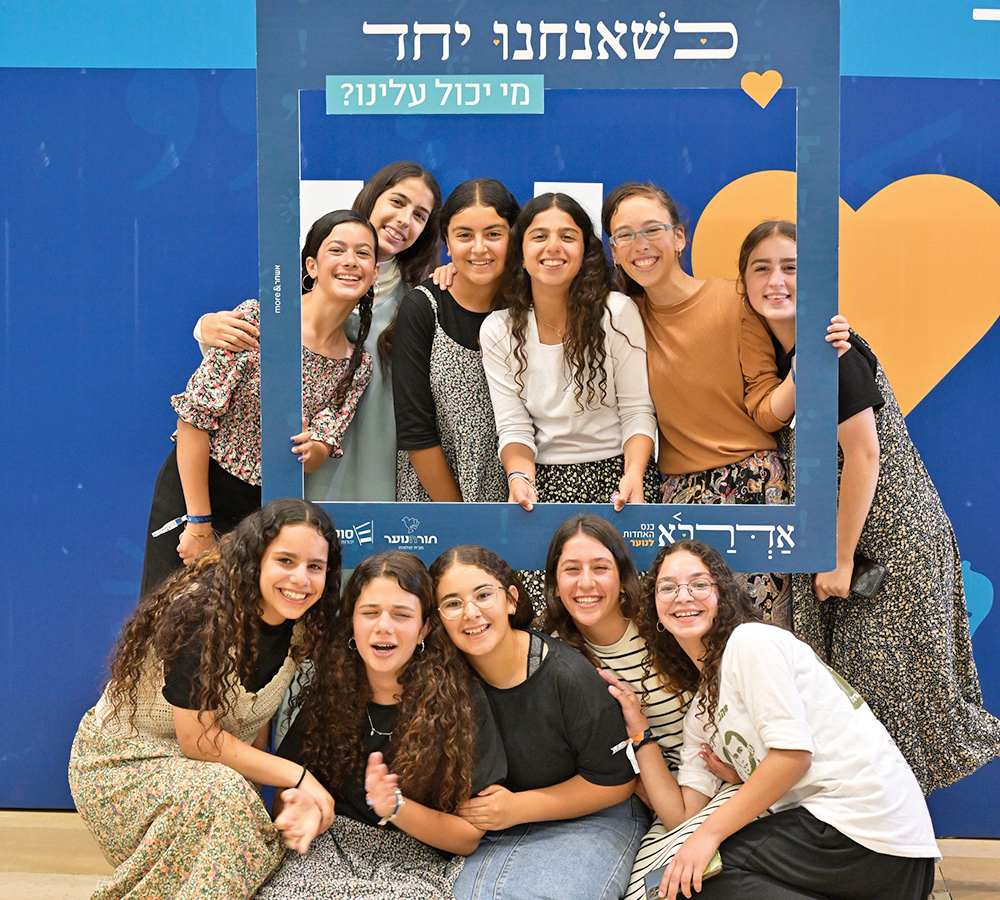
“I believe in the power of our youth,” said Rav Rimon. “It’s summer vacation—they could be doing so many other things today but they all chose to come here, to learn about achdut.”
Speakers at the conference included rabbis, educators, activists and public figures from across the spectrum of Israeli society.
In one memorable session, Michael Edri, an altruistic organ donor who is religious, stood on stage with the recipient of his kidney, Aviram Fidel, a secular Jew from Tel Aviv with extreme left-wing views. The two discussed the extraordinary bond they’ve cultivated despite holding polarizing political beliefs. “I’m from a religious, Zionist community, and Aviram takes part in the anti-government protests—really there is nothing that ostensibly connects us,” remarked Edri. “Nevertheless, our kidney donation has made us the best of friends. Not a week goes by when we don’t talk; our families are close; and really, we’ve succeeded in overcoming all the political arguments. We feel that what bonds us is far more powerful than any argument.”
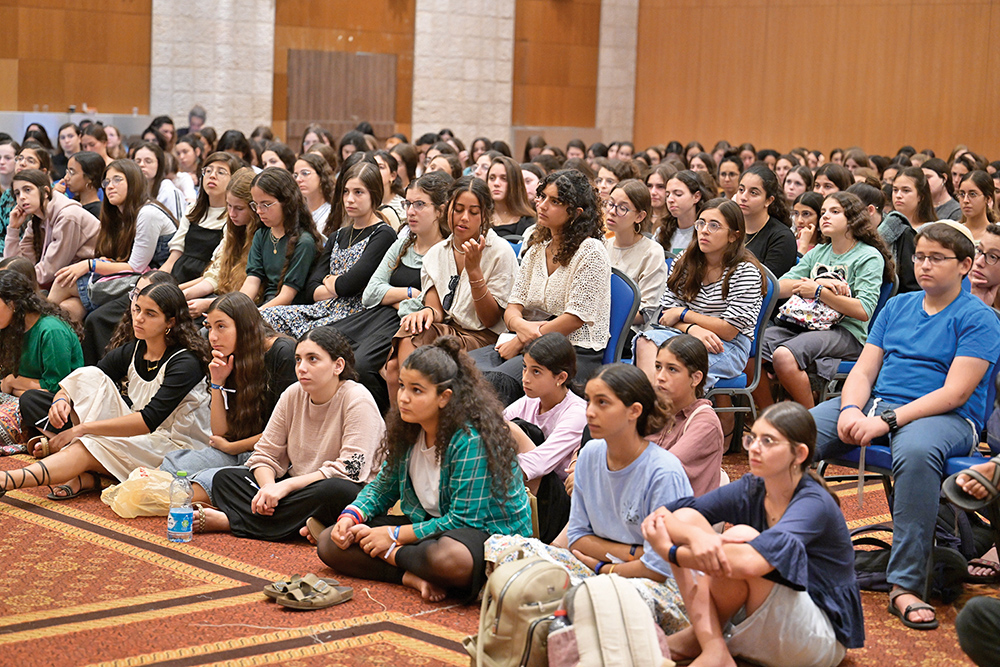
Fidel echoed Edri’s sentiments and called on all the youth present at the conference to emulate their example and work toward connecting all the factions within the Jewish people.
Chani Lifshitz, the dynamic Chabad emissary from Kathmandu, Nepal, spoke animatedly about her experiences at the Chabad House she runs with her husband, Rabbi Chezki Lifshitz.
“Jews of every age, color and type come to us, especially Israelis, and we see something magical happen: When travelers are far from home, they seek a common bond with the people they encounter. Trekkers, backpackers who never thought they’d come to a place of Torah learning, find themselves sitting together and enjoying learning, whether it’s parshas shavua, Tanya or hashkafa.”
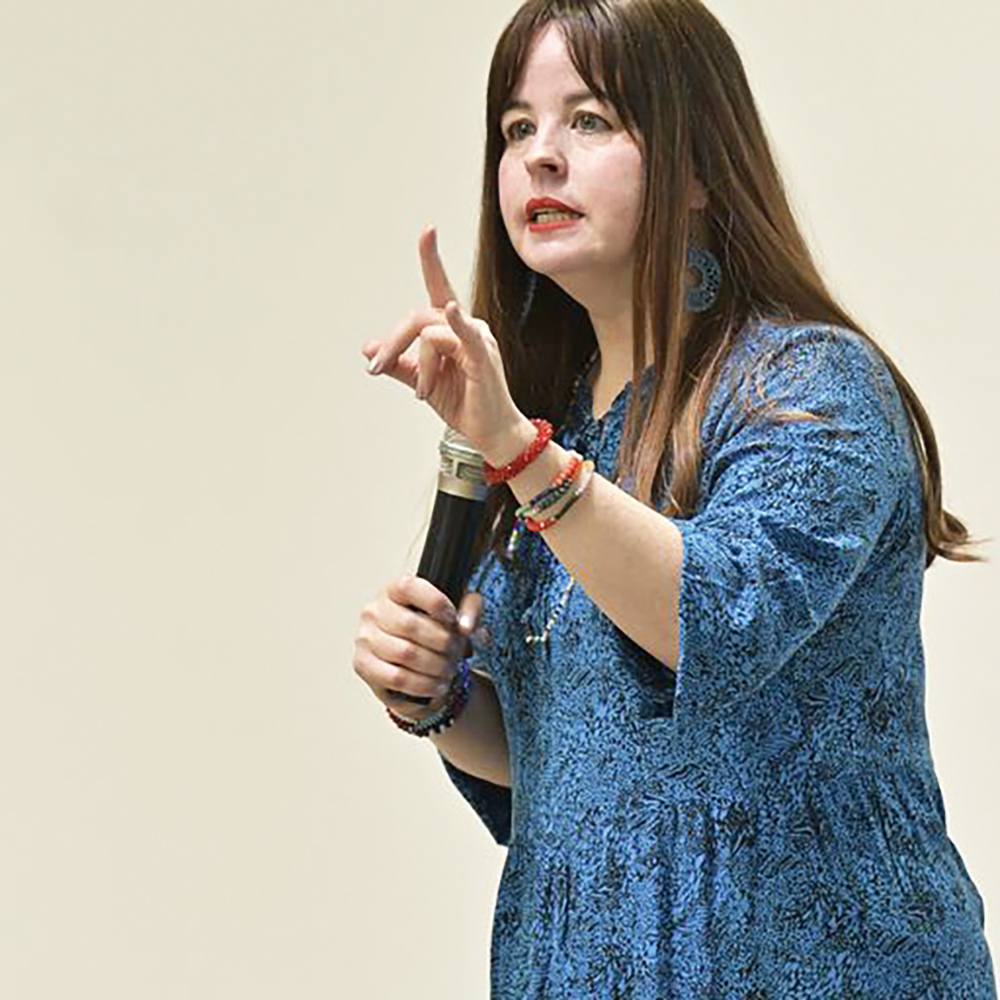
Responding to a teen from the audience who asked how to relate to someone who seems intent on sparking an argument, Chani replied, “Never take anyone’s words personally. Let’s say someone accuses you of being the face of the right wing, of the settler movement—they’re not really talking to you, but rather to the concept. Let him talk himself out, and take a deep breath. Remember that once he’s finished his rant, you can sit over a cup of coffee and get to know one another. Don’t be afraid to discuss things, to share. Suddenly you discover that you share the same dreams, enjoy the same things. You discover that you can be the best of friends.”
Bat Galim Shaer, mother of terror victim Gilad Shaer, Hy”d, recalled the tragic experience when her son was kidnapped together with his friends, Naftali Frankel and Eyal Yifrach. “Sadly, in times of war, of tragedy, Am Yisrael knows very well how to be united. We shouldn’t have to wait for times of grief, chas v’shalom,” she said.
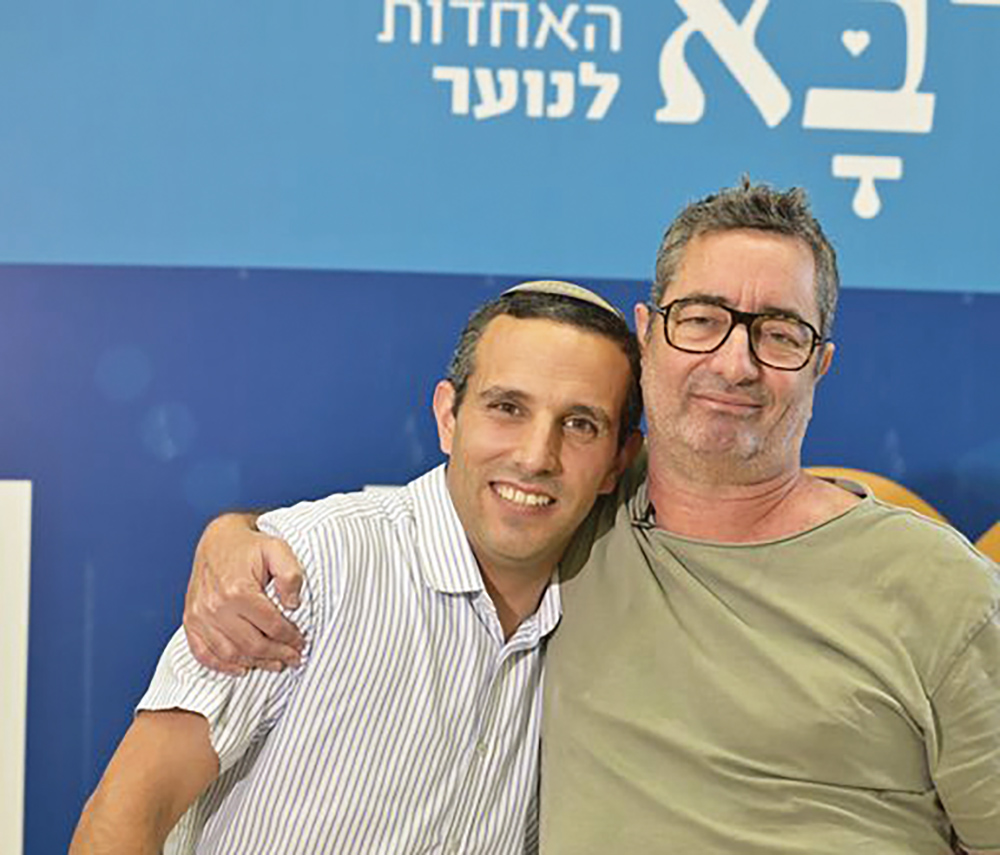
“We have to remind ourselves that as the Jewish people, we have it in our DNA to be united. We don’t have to be concerned about our diversity; actually, that is our strength. Yes, we need to learn more about respecting one another, listening to the other, but looking around us, at all the youth who came here today, we can be very optimistic about our future.”
At the panel discussion, Rabbis Yigal Levenstein and David Stav, both leaders with vastly differing perspectives within the national religious community, showcased how dialogue and healthy disagreement can be achieved with respect and dignity.
Rabbi Shmuel Eliyahu mirrored that reality with his observation: “Our Sages said, there is truth and there is peace. You can disagree, and can have a different viewpoint—and the Gemara is full of opposing viewpoints—but underlying it all is love and brotherhood.”
Each session buzzed with energy, filled with enthusiastic, engaged youngsters who listened raptly and responded with insightful questions. Many are regular participants in Sulamot’s 40+ TorahNoar batei midrash, which advocate youth-led, youth-focused learning programs every Motzei Shabbat.
The highlight of the conference was the mega-event, featuring artist Akiva Turgeman, who delivered a power-packed performance with songs that were both somber and hopeful. After an emotionally stirring video interview with Rabbi Leo Dee, a grieving husband and father to terror victims, Lucy, Maia and Rina, Hy”d, Rabbi Dee took to the stage in person. He exhorted the youth to engage in ahavat chinam, specifically at this time, on the eve of the mourning period for the Beit Hamikdash and as Israeli society experiences one of its most divisive periods.
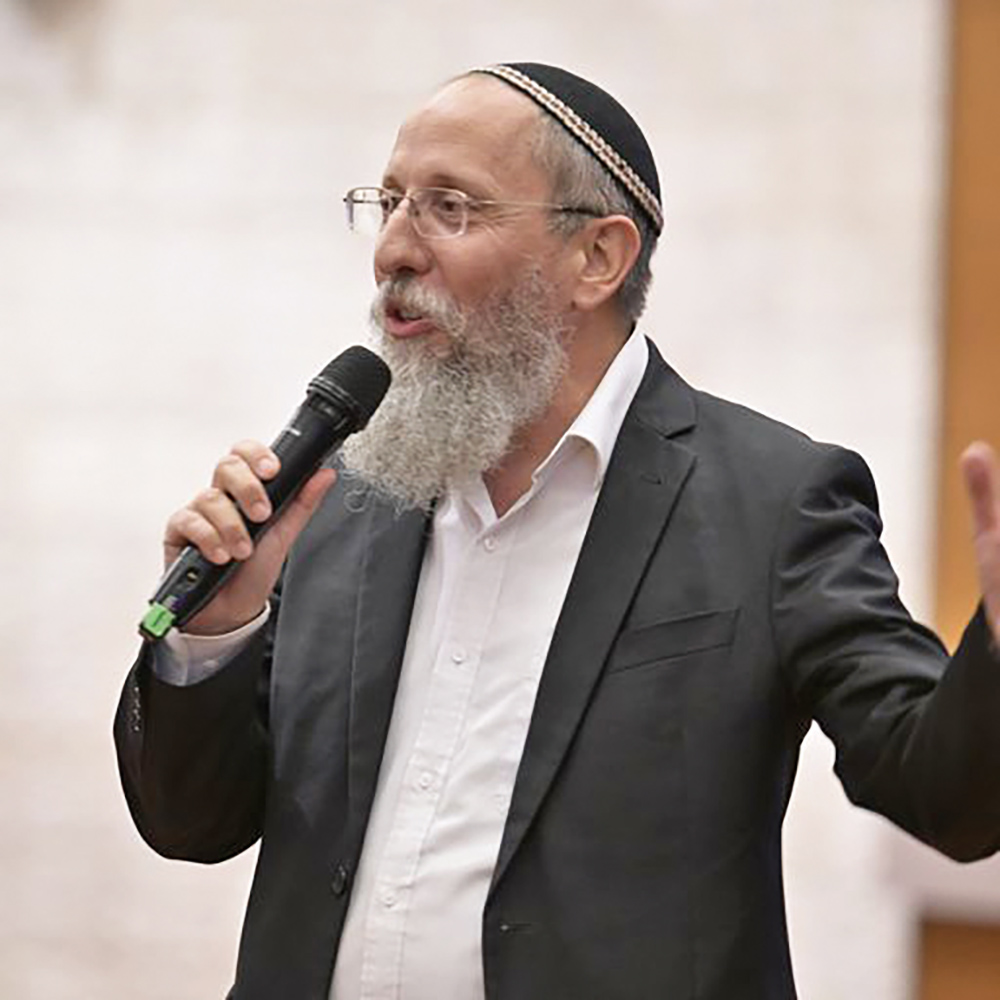
Rabbi Dee cited the parable about three blind men feeling an elephant. “One is holding the trunk, one is holding the leg, and one is holding the tail. The first one says it’s a pipe, the second says it’s a tree trunk and the third says it’s a rope. They’re all describing the elephant, but they don’t know because they’re only holding one part of it.
“When we’re arguing with other people, usually they are holding one part of the argument that we’re not aware of. But if we show them respect and stop and listen to what they have to say, we can learn, they can learn, and we’ll all grow from the argument.”
Rabbi Dee was overcome with the outpouring of emotion from the audience. “I think it’s tremendous to bring all these youths together, learning from each other, seeing the respect that their rabbis are giving to one another and understanding that there’s more than one side of the ‘elephant,’ and that everybody together makes a better whole.
“This conference sends the precise message that the Jewish people need right now—one of tolerance, understanding and love.”










